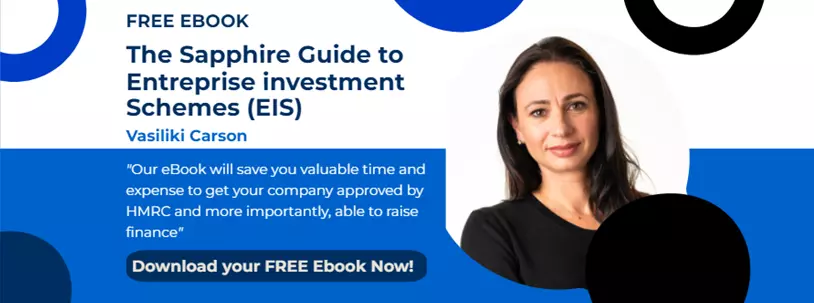 Over 25 years ago, the Enterprise Investment Scheme (EIS) was established to assist high-risk start-up companies to grow and develop. EIS enables companies to raise investment by offering investors attractive tax reliefs which reduces their capital at risk. There are multiple qualifying conditions a company must meet to qualify for EIS, one of the most significant requirements is the company must be carrying out a qualifying trade. The company has to carry out a new qualifying business activity, that is either a qualifying trade, preparation to conduct a qualifying trade or research and development that leads to one. This qualifying trade should not be a continuation of an existing or previous trade by the company or founders of the company.
Over 25 years ago, the Enterprise Investment Scheme (EIS) was established to assist high-risk start-up companies to grow and develop. EIS enables companies to raise investment by offering investors attractive tax reliefs which reduces their capital at risk. There are multiple qualifying conditions a company must meet to qualify for EIS, one of the most significant requirements is the company must be carrying out a qualifying trade. The company has to carry out a new qualifying business activity, that is either a qualifying trade, preparation to conduct a qualifying trade or research and development that leads to one. This qualifying trade should not be a continuation of an existing or previous trade by the company or founders of the company.
Qualifying Trades
The investment raised under EIS must be used for a qualifying trade. HMRC considers the following trades as excluded activities for EIS purposes:
- Dealing in land, in commodities or futures or shares, securities or other financial instruments;
- Dealing in goods otherwise than in the course of an ordinary trade of wholesale or retail distribution;
- Banking, insurance, money-lending, debt-factoring, hire-purchase financing or other financial activities;
- Leasing (including letting ships on charter or other assets on hire);
- Receiving royalties or licence fees (subject to the exception relating to self-generated intellectual property);
- Providing legal or accountancy services;
- Farming and market gardening;
- Holding, managing or occupying woodlands, any other forestry activities or timber production;
- Property development;
- Shipbuilding;
- Producing coal and/or steel;
- Operating or managing hotels or comparable establishments or managing property used as a hotel or similar establishment;
- Operating or managing nursing homes or residential care homes or managing property used as a nursing home or residential care home;
- Generation or export of electricity or power, both renewable and non-renewable;
- Production of gas or fuel; and
- Providing services to another person where that persons trade consists, to a substantial extent, of excluded activities, and the person controlling that trade also controls the Company providing the services.
Continuation of Trade
To qualify for EIS the trade must be less than seven years old; this means the company cannot be a continuation of trade of another company over seven years old to qualify for EIS. HMRC will look for a continuation of the trade when reviewing EIS applications; checking previous companies the founders operated looking for similar trades, company names and directors. There are several forms of a continuation of trade HMRC will consider:
-
Continuous Incorporation and Dissolution:
Where a company has been operating for several years and is then dissolved and then a newly established company is incorporated, carrying out an identical trade. -
Natural Progression of Trade:
HMRC will also look to see when a company was incorporated to carry out a natural progression of trade of another company the founder(s) operate. For instance, if ‘ABC Publishing Limited’s’ trade was one of publishing books, and then incorporated another company, ABC Productions Limited’ where the trade was producing movies based on the other company’s books and had a similar name, directorship and business address. HMRC would consider this a continuation of the first company’s trade, and if the publishing company were over seven year’s old and the production company was applying for EIS, HMRC would likely consider the only reason the new company was incorporated was to benefit from EIS. -
Trades from Insolvency:
Where a company buys an asset, for instance, an IP, from an insolvent company and then uses the asset wholly in the trade of the company, HMRC will consider this a continuation of the trade. HMRC will likely consider the trading date from the insolvent company as the date the acquiring company begun trading. And if the insolvent company began trading over seven years ago, the acquiring company will not qualify for EIS.
When considering whether a company is qualifying, companies should not only determine whether their trade is qualifying but determine if HMRC will consider their trade to be a continuation of the trade.



